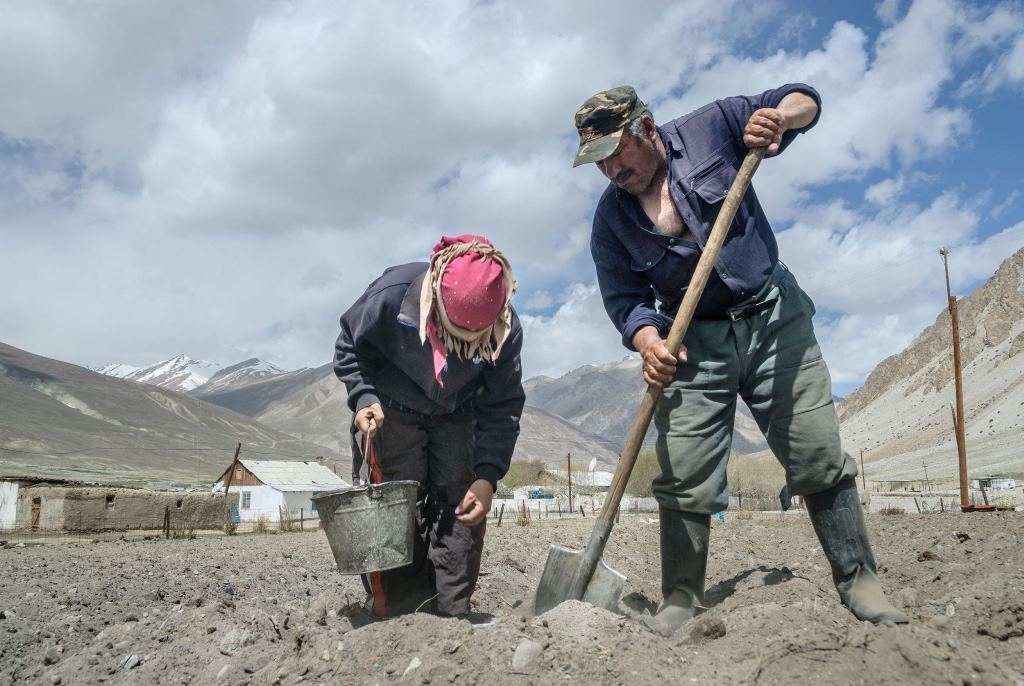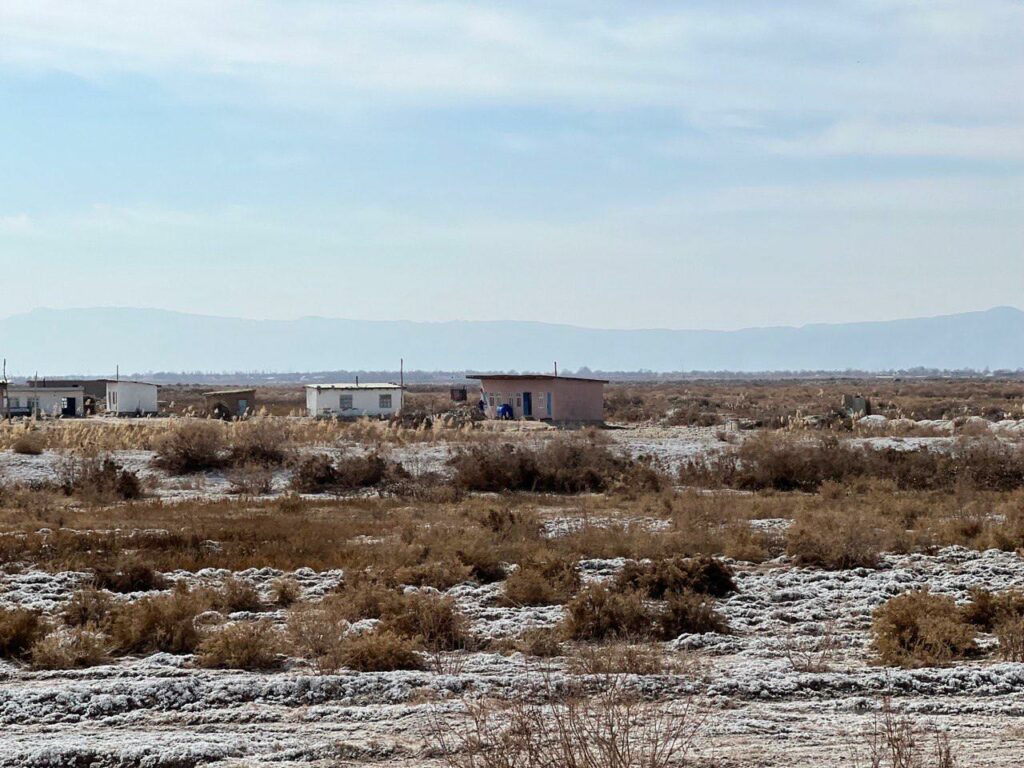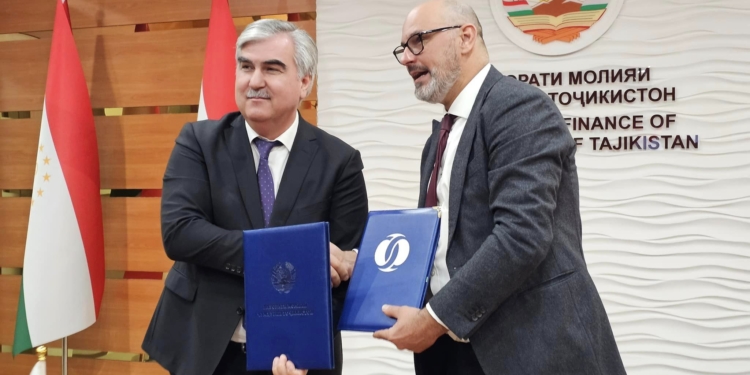Case Study: Empowering Rural Women through Microprojects and Eco-Agriculture in Tajikistan
Background: Mrs. Sattorova Sanomoi, Director of School No. 100 in a rural region of Tajikistan, faced significant challenges managing her semi-supplied rain-fed land, which was prone to erosion. With the support of NCU Tajikistan, she implemented a microproject that proved transformative not only for her but also for the local community. With this support, Mrs. Sanomoi undertook a project that yielded substantial economic and environmental benefits.
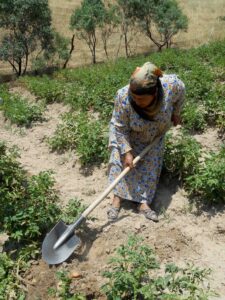 The Microproject Impact: Thanks to the microproject initiated through NCU Tajikistan, Mrs. Sanomoi cultivated 28 hectares of previously underutilized land. She planted potatoes, melons, and almond trees, generating a net benefit of 30,500 Somoni (USD 3,550) from selling harvested products. The success of her microproject enabled her to significantly improve her family’s financial stability, giving her the foundation to invest in further ventures.
The Microproject Impact: Thanks to the microproject initiated through NCU Tajikistan, Mrs. Sanomoi cultivated 28 hectares of previously underutilized land. She planted potatoes, melons, and almond trees, generating a net benefit of 30,500 Somoni (USD 3,550) from selling harvested products. The success of her microproject enabled her to significantly improve her family’s financial stability, giving her the foundation to invest in further ventures.
Mrs. Sanomoi had previously sought support from other organizations, but these proved difficult to access due to heavy bureaucratic procedures and high interest rates of 18% and 21%, respectively. In contrast, the microproject through NCU Tajikistan provided more favorable conditions, encouraging her to invest in additional income-generating activities. For instance, she expanded her cattle breeding business, growing her livestock from one to seven cows, with plans to become fully economically independent within two years. She also envisions developing a seven-hectare picnic area to diversify her income further.
Capacity Building and Training: Alongside financial support, Mrs. Sanomoi participated in nine comprehensive training sessions by NCU Tajikistan. These workshops covered crucial topics such as deforestation, agroforestry, agro-investment, small and medium-sized enterprises (SMEs), trade, and community sanitary practices. The training was instrumental in empowering her to adopt eco-agriculture techniques, enabling her and other local residents to maximize land productivity while promoting sustainable practices.
Environmental and Community Benefits: The adoption of eco-agriculture systems introduced by NCU Tajikistan profoundly impacted Mrs. Sanomoi’s land and the broader community. Through inter-cropping and agroforestry methods, they were able to rehabilitate and reinforce degraded slope lands, which had been prone to erosion. This transformation resulted in enriched soils, increased crop yields (up to three harvests per year), and the production of additional forage for livestock, ensuring food security during the harsh winter months.
Mrs. Sanomoi’s leadership and active participation in the microproject and training programs also raised awareness among other women in the community about the importance of financial autonomy and sustainable agricultural practices. Her efforts demonstrated how micro-projects could empower rural women to gain financial independence and enhance local livelihoods through improved land management.
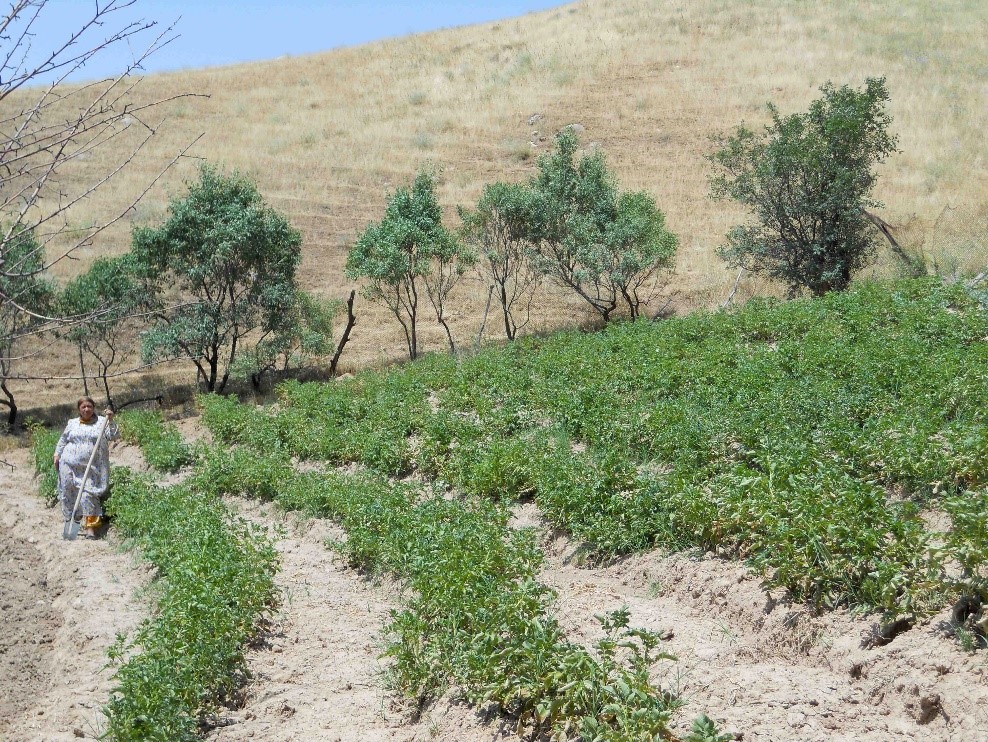
Mrs. Sattorova Sanomoi’s success story highlights the critical role that microprojects and capacity-building initiatives can play in empowering rural women and promoting sustainable agriculture in Tajikistan. By transforming her semi-supplied rain-fed land into productive, environmentally sustainable agricultural plots, she achieved financial independence and created a ripple effect of positive change in her community. Her microproject models how targeted interventions can uplift rural economies while fostering long-term environmental sustainability.

